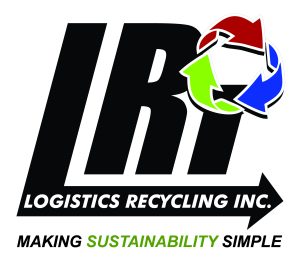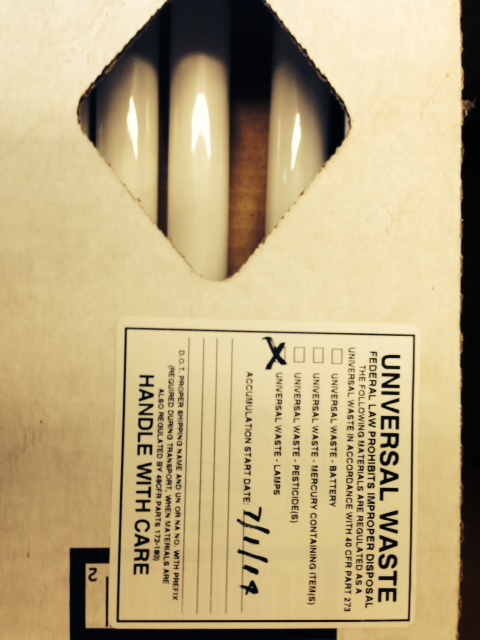If you have medical waste on premise, sooner or later, a DNR medical waste audit may happen. The Department of Natural Resources does this to ensure you are properly disposing your medical waste. To help you avoid any possible penalties, here are the top 12 things the DNR looks for during an audit.
DNR Penalties Can Be Steep
Penalties for failing to comply with federal or state regulations can be drastic. Sometimes they are as much as $10,000 to $25,000 per violation, per day.
While they are not exhaustive, here are the top 12 questions the DNR asks when they audit a clinic, lab, medical office or any type of small business with medical waste:
1. Covers on waste containers?
Remember, your medical waste containers are not like trash cans. The contents it in can pose a far greater risk than standard waste. Therefore, covers must remain on the containers at all times unless adding additional waste.
2. Do storage areas have an “infectious waste” or “hazardous waste” label?
Multiple types of waste can be in storage in the same room. However, signs on the door must indicate every type of waste inside. Once inside the storage area, waste must be segregated by classification and have the correct label on it.
3. Can you produce copies of the manifests?
Your manifests must show the entire lifecycle of your medical waste, from cradle to grave. Essentially, your records must indicate where the waste began (cradle) all the way through where it goes for destruction (grave). Plus, any transportation in between.
Try to find a medical waste disposal company that creates electronic manifests. Ideally, you want one that sends them to you you via email and also stores a digital copy. This makes it easier for you to store your manifests. And, it helps if you need to retrieve a new copy should an old one get lost.
4. Can you provide training documents?
Any employee who handles medical waste must show they have gone through proper training. The DNR and OSHA will want to see documentation proving that each employee who handles medical waste has been properly trained to handle that specific type of waste.
Let’s Address Hazardous Issues
Here are a few issues around hazardous waste.
5. Is there a proper label on each hazardous waste container?
Each hazardous waste container holding medical waste must have a label on it with the following:
- Different chemicals must be in the right category and package. Also, they must be stored according to their hazard level and chemical make-up. The DOT CFR 49 can tell you which chemicals are and are not hazardous.
- A label dating when the container first came into the main accumulation storage area
- A label that correctly categorizes the waste as hazardous or non-hazardous in accordance with DOT CFR 49
- If you combine multiple containers of the similar waste into a larger barrel or container, you must write the date of the earliest container that was put into the larger container.
6. Have you categorized pharmaceutical waste by chemical composition and hazard code?
However, things become more difficult with drugs. This is because they often contain multiple chemicals. In this case, talk to a pharmacist. He or she should provide you with a chemical breakdown of the drug. This is also known as a “formulary”. Then, give the formulary to your medical waste disposal company. They can then categorize the drug as either hazardous or nonhazardous.
Six More Questions to Go!
Here are the remaining questions you may be asked by the DNR during a medical waste audit.
7. Did you file reports with the DNR and do you have them available?
You need to file a report with the DNR every year that details your annual waste production. If the DNR audits your business, you must be able to produce these reports, so always keep a copy on file.
8. Can you provide reverse distributor records?
If a pharmacy has an excess of expired drugs, they can return them to the drug manufacturer for money. You do this by using a Reverse Distributor. They will categorize the expired drugs and submit refund requests to the manufacturer on your behalf. The Reverse Distributor will ensure you are in compliance with DEA regulations. It’s a great program. However, you need to have records showing the transfer to the DEA register Reverse Distributor. Make sure to have them on file in case of an audit.
9. Do you have a waste disposal diagram?
You must have a waste disposal diagram that tells employees where to discard each type of waste. This is often done by color coding. Check with your medical waste disposal company to see if they can create a disposal diagram for you.
10. Do recycled light bulbs have a “universal waste” label?
The definition of universal waste is “a category of waste materials designated as ‘hazardous waste’. These are often very common materials.
Florescent light bulbs are always considered universal waste. Other objects, such as certain batteries, pesticides and thermostats, can fall under the category as well. To see what products are considered universal waste in Wisconsin, refer to this “universal waste management standards” document.
11. Do you have written policy and procedures in the event of an accident, such as spills?
The DNR wants to know that you have written procedures in the event of an accident. Also, they want to know that each of your employees know these procedures.
12. How do you account for the “P” listed waste?
“P” listed waste is a classification of waste that includes acutely toxic material. This classification primarily includes nicotine and warfarin in health care. To see what waste falls under the category “P”, you can refer to this chart from the Environmental Protection Agency breaking down different waste categories.
The DNR’s audit process is thorough. It is one that requires the utmost organization to show compliance with its regulations. While the 12 questions we have here are not exhaustive, they are a great place for any small business to start. Remember, to remain compliant to avoid major fines. Keep in mind, you never know when the DNR will come knocking.





